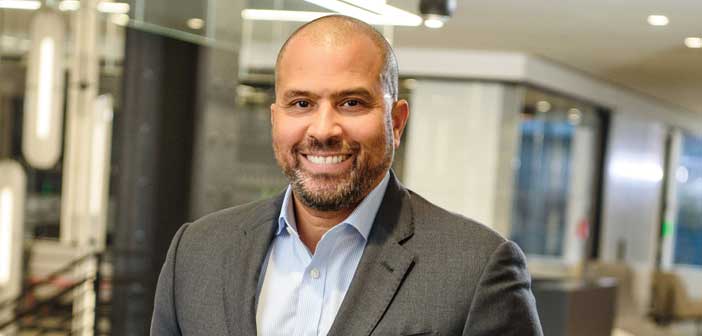While it has been widely reported that the hotel industry has fully recovered from the COVID-19 pandemic, there is one area that has slowed tremendously. In the last year or so, the number of hotel transactions has sunk precipitously, with JLL’s Hotels & Hospitality Group reporting in its Global Hotel Investment Outlook 2024 that worldwide hotel transaction volume sunk to $44.5 billion, a 10-year low (excluding 2020).
No industry group is more aware of this than hotel brokers, who are on the front lines of hotel transactions, helping buyers and sellers through the often-complicated process of making a deal.
“Transactions compared to what we had in 2022 declined by a lot,” said Luis Garino, partner, Kabani Hotel Group, whose firm had the most transactions in Florida in 2023. “This was the common denominator across the brokerage community. We were fortunate to not have as much reduction in our transaction volume from what we did in 2022—we only had a 30% drop. We have seen our peers getting closer to 40%.”
Joseph Kennedy, president, Crystal Investment Property LLC, likened 2023 to a slow-moving train.
“All year long, we had different things happening,” he said. “In the Pacific Northwest, we had all sorts of weather events in Q1, which led to drops in travel across the entire region. Then, you compounded that by having concerns about the economy. Are we going to have a recession? How long are they going to keep raising rates? Lenders froze. We had multiple wars happening. It can’t be one thing after another that just kept piling onto not only the hospitality sector, but also the broader commercial marketplace.”
Deals did happen last year, and Kennedy said that many brokers had to get creative to get some of them done.
“We ended up having to come up with a lot of creative strategies to overcome the financing freeze that was occurring and has just started to loosen up,” he said. “I feel like brokers and sellers learned from 2008 to 2010—that period where financing froze—and recognized a lot earlier that they had to pivot to seller financing. We’ve got to do lease options and come up with creative structures—local banks, sellers carrying in second position—to improve equity and cash flow.”
Interest rates spike
The decline in transactions largely has to do with rising interest rates, as the Federal Reserve boosted rates to stave off inflation, with 11 increases from March 2022 to July 2023.
“One of the big issues that lenders and buyers were facing last year was that nobody really knew when interest rates were going to stop going up,” said Dennis S. Hopper, managing principal, DSH Hotel Advisors. “That uncertainty created a layer of difficulty in valuing hotels and properties.”
The high interest rates have affected hotel values. “That minimizes the incentive for a seller to actually sell or negotiate,” said H. Brandt Niehaus, president, Huff, Niehaus & Associates Inc. “Lenders drive the values as much as the buying market does. If you take an NOI for a property and apply a 9.5% interest on the loan, the debt coverage ratio doesn’t cover as much. A 1:2 debt coverage ratio doesn’t cover as much as a loan that was at 4.75% not that long ago.”
The interest rate changes the value of hotel real estate, which changes the amount of transaction activity that happens.
“A lot of owners don’t want to take the risk on rates coming down, which is one of the reasons why transaction activity declined 45% last year,” said Kevin M. Davis, Americas CEO, JLL Hotels & Hospitality. “It’s just that the cost of debt is so expensive. That continues to be the case even though we feel better that rates will come down on the floating rate side. The math today is not much different than it was given where the indices are.”
Hopper said that increases in interest rates weren’t the only reason for the slowdown in transactions in 2023. “There was a pretty big increase in revenue in ’21 and moving into ’22, and transactions really spiked before interest rates went up,” he said. “That really inflated seller expectations for pricing.”
The higher interest rates and the previous strong performances created a gap between what sellers want to receive for their properties and what buyers are actually willing to pay.
“Sellers want 2021 or 2022 pricing, and buyers tell me they can’t pay a 9- or 10-cap when they are paying 10% interest rates,” said Ed Walsh, president, Alpine Realty Capital and president of the Hotel Brokers International, an organization representing brokers.
Ahmed Kabani, founder/CEO, Kabani Hotel Group, said that his company listed a property at $11 million, and it has received offers between $7.5 million and $8.5 million, adding, “The sellers were shocked. But they were very appreciative that we showed them why the buyers came up with this offer because they are worried that if the drivers don’t go in the right direction, it is not going to be profitable, especially with the debt service.”
Room for improvement
While the transactions market was weak last year, there is hope among brokers that it will improve going forward, with the most notable improvement toward the end of the year.
“The transactions market will be stronger this year than it was last year,” said Davis. “However, it will be back-end loaded. Initially, there was the view that the Fed rate cuts would come in the spring and/or in the first half of the year, and now it’s looking increasingly like they will come in the second half of the year. It’s certainly possible that we could pick up a head of steam midyear with closings in the fall that really propel us forward for next year.”
Hopper agreed with Davis’ assessment. “We work with a lot of hotel owners and investors and, with everyone we’re in touch with, it sounds and feels like the landscape is healthy right now,” he said. “I feel like there is a lot of optimism moving into this year, and I think is only going to become healthier as we move into Q2, Q3 and the latter part of the year.”
For Davis, this is all dependent on Fed rate cuts, and when and if they happen. “If inflation continues to be an issue and if rate cuts are no longer on the table for 2024 and get pushed back into 2025, that will have an immediate and direct impact on the transactions market,” he said.
But, he added, the market is functioning with the expectation that there will be rate cuts in the latter half of 2024. “To the extent that that gets delayed, then that will have an adverse impact on the market,” Davis said.
Hopper doesn’t see interest rates going up this year. “It seems like interest rates aren’t going to be going up anymore,” he said. “If they do, it shouldn’t be by much, and it’s more probable that interest rates might be coming down a bit.”
That stability will mean more transactions. “We’re starting to see more lenders reenter the market, and I think a lot of capital that on the sidelines could start flowing back in probably starting the middle of the year,” Hopper added.
Niehaus said that when he was at the ALIS Conference in Los Angeles in January, the opinions he heard were quite varied.
“It was everything from a whole point drop to no drop at all,” he said. “Because it is so uncertain, you may not see quite as much activity in the first two quarters. Usually in our industry, once rates stabilize, the activity starts up again because buyers know what they are dealing with.”
He doesn’t expect a rate cut. “The economy is doing fairly well with unemployment numbers not as bad as most thought it would be in the first part of the year,” he said. “As long as the economy keeps churning along, there really is no incentive for the Fed to drop the rate.”
Kabani Hotel Group’s Garino said that the most important thing from the Fed is clarity.
“Any clarity from the Fed in the market is good, whether they keep the rates or raise them,” he said. “The problem we have is that nobody knows what’s going to happen, and therefore everyone is worried just waiting to see when we are going to stabilize. I do feel that if we do get some good news from the Fed, and they say they are not going to raise the rates anymore, [transactions will go up].”
Kennedy said he has already started to see things starting to open again, adding, “We’re seeing a lot more seller activity and people reaching out interested in selling, so it feels like the dam is starting to open up a bit with all of this pent-up desire for deal flow.”
As for buyers, he said they are coming back because they are ready to expand their portfolios and have been holding on to their cash. “Hotels still offer a better return as long as your cap rate and cash flow are over what you’re going to be seeing in the stock market or a savings account,” he said.
Buyers also have the opportunity to refinance their debt as rates do start to drop.
“A lot of the buyers that we have done deals with recently have gone in with a mindset that they are going to refinance the asset in several years after they take ownership of it,” said Stephen Albis, principal, CAS Hotel Advisors. “If there is a prepayment involved, they want to get past that prepayment penalty window and refinance the asset.”
Hopper also believes that the gap between buyer and seller that was created last year is starting to get bridged. “With that, we are going to see a lot more transactions happening,” he said. “Last year, there were still a lot of properties for sale, but they weren’t necessarily selling. This year, we’re going to start seeing a lot of those properties and new properties that are coming up for sale actually transact.”
Walsh has already started to see sellers who are becoming more flexible in pricing.
“It is very simple: numbers don’t lie,” he said. “You can’t sell on a 9-cap when interest rates are 9.5%. It just doesn’t work out. Unless the seller wants to wait for rates to come down or revenues to increase, they have got to come down on price or else it is just not going to sell.”
Another positive for the possibility of a rebound in transactions is that the financing market has been “extraordinarily strong in the first two months of the year, particularly in the single asset single borrower CMBS space, where spreads are 50 to 100 basis points, depending on the amount of leverage,” according to JLL’s Davis. “We are also seeing a very robust debt fund lending market where credit spreads are 25 to 35 basis points.”
Davis said that there are several factors driving the financing market.
“No. 1, because we have seen such a strong rally in credit spreads, that’s pulled people off the sidelines—people who have an opportunity finance now or some point in the future. It’s pulled financings forward because the market hasn’t been this strong since 2022.”
The second driver, he pointed out, is maturities that are coming up or extension tests, noting, “A big part of this is the fact that the markets are open and credit spreads have come in, which has caused people to move forward on their refinancings.”
He also pointed out that Treasury rates have also come in about 50 basis points since October 2023 and credit spreads have also come in.
“As a result of that, it’s now possible to borrow on a fixed-rate basis—best case, with six-handle pricing for low leverage, which is something that we haven’t seen [since 2022],” he said.
As the year goes on, Hopper expects more properties to come up for sale.
“There seems to be a lot more owners considering selling in the discussions that we are having,” he said. “If there are a lot more properties available for sale, it’s going to be more challenging for someone right now who is waiting to sell. Right now, there aren’t as many properties for sale as there likely will be as we move into Q3 and Q4 of this year and beyond.”








